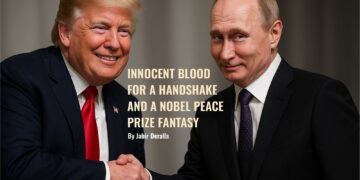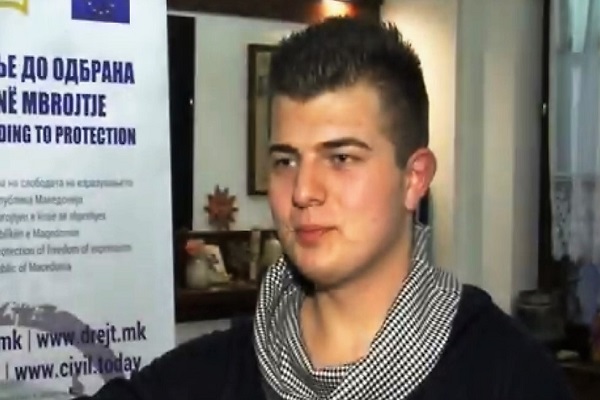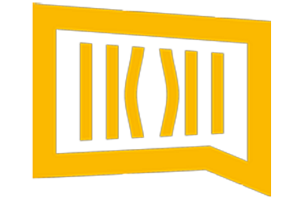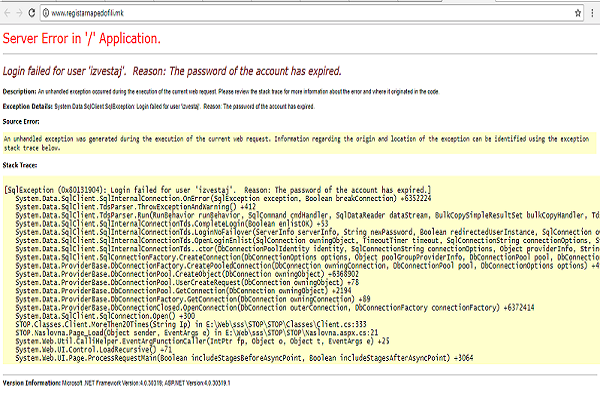We talk with Martin Nikolovski, a journalism student from Bitola who decided to study in Ankara, Turkey, about freedom of expression, the meaning of activism and about journalism in Turkey and in Macedonia.
CIVIL Media: What does freedom of expression, media freedom and activism mean to you?
Nikolovski: Freedom of expression, especially if journalism is your profession, is one of the most important things a journalist wishes for – to write freely on a certain topic that is considered to be of public interest and one that can bring about changes in society. In regards to how much it is actually practiced and what the situation of the media is like in Macedonia and in the world, I think that we are a country in which we are still fighting for a free speech, especially was the case in the past several years. Namely, journalists that spoke freely were imprisoned, under great pressures and enormously high fines. That is why I think that journalists still need to lead that struggle for freedom.
Media freedom also depends on the editorial policy and of the focus of the media itself, that is, from the decision how they will present the information to the public. Some media are economically independent, primarily from political parties, whichever one is in power…I do not believe that if a certain media outlet has taken millions of denars, that it would report against the government, especially when the financing comes from there. On the contrary, that media becomes a servant of the government…
Thanks to activism in Macedonia, people have started believing in changes. We witnessed student and high school protests that brought about changes also on the political scene in the country. Recently we have seen just how much public opinion and criticism can change something if we want to. Activism should be on a higher pedestal…
CIVIL Media: Can you make a comparison of how journalism is taught and practiced in Turkey, where you study journalism, with how it is in Macedonia?
Nikolovski: In Turkey practice is mandatory, regardless of what you are studying. The universities are at a high level in terms of the conditions for holding classes. We are witnesses to just how bad the conditions are in our country, especially at the University St. Kliment Ohridski in Bitola. The lecture rooms haven’t been renovated for years, classes are taught on broken desks in substandard conditions, unlike Turkey.
In terms of the media in Turkey, I will make a comparison between the local media in Bitola and in Ankara. If you are a local media in Ankara, you automatically have an audience of six million, as much as there are residents. Here in Bitola we have 80,000 residents, but not all of them watch a local media…The media in Ankara are economically independent and have no pressures from the government, regardless of which one is concerned. They are not dependent and they run their own policy, the way they want to. In Bitola we know the market and we know how much one is powerful.
In terms of freedom of expression, according to me, if I am being asked what the real image of Turkey is, because I am often asked why I had chosen to study there, I explain to them that the Western media are presenting a wrong image of what is really happening to the media there. The situation is not as bad as it is shown. There is, nevertheless, freedom. However, there is also quite a lot of pressure by the government. Following the coup in Turkey in 2016, over 3,500 journalists have been arrested, and I do not know just how many media outlets have been closed because of being with the “FETO” organization. I am not competent to say what the extent of the connection is…
CIVIL Media: How much is journalism in Macedonia free and what needs to be undertaken to protect or to gain even greater media freedom and independence?
Nikolovski: The problem is the conditions in which journalists work in, especially in the local media. There are still some media that are located in barracks, with limited resources, correspondents do not have their own offices, they manage anyway they can. This needs to change. And the journalists themselves need to fight…
Biljana Jordanovska
Camera: Dehran Muratov
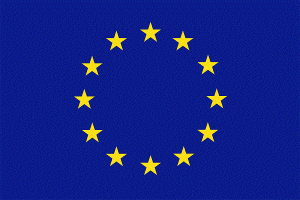 This project is financed by the European Union through the small grants program “Protecting Media Freedom and Freedom of Expression in the Western Balkans”, implemented by the Croatian Journalists Association, as part of the regional project “Western Balkan’s Regional Platform for Advocating Media Freedom and Journalists’ Safety”, implemented through a partnership of six regional journalist associations – Independent Journalists’ Association of Serbia, Association of Bosnia-Herzegovina Journalists, Croatian Journalists’ Association, Association of Journalists of Kosovo, Association of Journalists of Macedonia and the Trade Union of Media of Montenegro.
This project is financed by the European Union through the small grants program “Protecting Media Freedom and Freedom of Expression in the Western Balkans”, implemented by the Croatian Journalists Association, as part of the regional project “Western Balkan’s Regional Platform for Advocating Media Freedom and Journalists’ Safety”, implemented through a partnership of six regional journalist associations – Independent Journalists’ Association of Serbia, Association of Bosnia-Herzegovina Journalists, Croatian Journalists’ Association, Association of Journalists of Kosovo, Association of Journalists of Macedonia and the Trade Union of Media of Montenegro.








